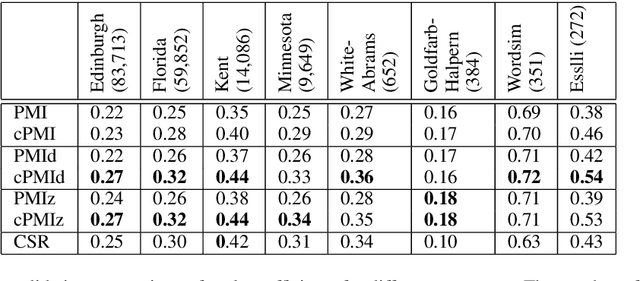Improving Pointwise Mutual Information (PMI) by Incorporating Significant Co-occurrence
Paper and Code
Jul 02, 2013



We design a new co-occurrence based word association measure by incorporating the concept of significant cooccurrence in the popular word association measure Pointwise Mutual Information (PMI). By extensive experiments with a large number of publicly available datasets we show that the newly introduced measure performs better than other co-occurrence based measures and despite being resource-light, compares well with the best known resource-heavy distributional similarity and knowledge based word association measures. We investigate the source of this performance improvement and find that of the two types of significant co-occurrence - corpus-level and document-level, the concept of corpus level significance combined with the use of document counts in place of word counts is responsible for all the performance gains observed. The concept of document level significance is not helpful for PMI adaptation.
 Add to Chrome
Add to Chrome Add to Firefox
Add to Firefox Add to Edge
Add to Edge